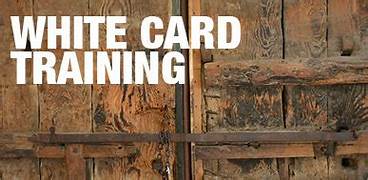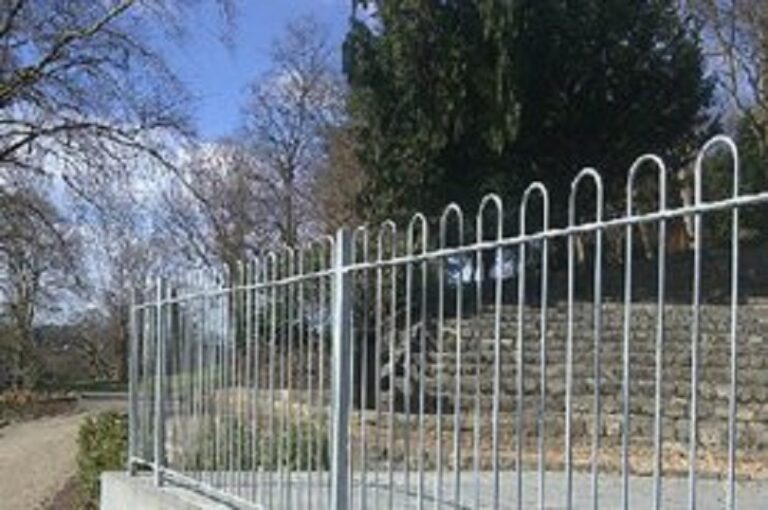
Construction Readiness Starts Here: Unveiling the Crucial Importance of White Card Training
In the realm of construction, ensuring a safe and prepared workforce is not just a legal obligation but a fundamental necessity. The White Card Training program emerges as a cornerstone for construction readiness, equipping workers with the essential knowledge and skills to navigate the challenges of the construction site. This comprehensive article explores the importance of White Card Training, its core components, and the transformative impact it has on the construction industry.
Understanding the Significance of White Card Training
Legal Compliance and Workplace Safety
At the heart of White Card Training is the commitment to legal compliance and workplace safety. In many jurisdictions, possession of a White Card is a legal requirement for anyone working in the construction industry. This card signifies that the holder has completed the necessary training to understand and adhere to the safety regulations and standards governing construction sites. Legal compliance is not just about avoiding penalties; it is a crucial step in ensuring the well-being of construction workers.
Uniform Standards Across Construction Sites
One of the distinctive features of the White Card is its national recognition. Regardless of the state or territory, the White Card is a standardized credential that signifies a worker’s readiness for construction activities. This uniformity ensures that construction workers can seamlessly transition between projects and sites, promoting consistency in safety practices and reducing the risk of accidents.
Core Components of White Card Training
Comprehensive Understanding of Construction Hazards
White Card Training provides participants with a comprehensive understanding of the potential hazards present on construction sites. From heavy machinery and electrical risks to working at heights, participants learn to identify, assess, and mitigate these hazards. This knowledge is foundational for creating a safe working environment and preventing accidents that could result in injury or even loss of life.
Emergency Response and Evacuation Procedures
Construction sites are dynamic environments where unforeseen emergencies can occur. White Card Training includes modules on emergency response and evacuation procedures, ensuring that workers are equipped to handle situations such as fires, chemical spills, or other unexpected events. Preparedness is key to minimizing the impact of emergencies and safeguarding the lives of construction workers.
Understanding Personal Protective Equipment (PPE)
The effective use of Personal Protective Equipment (PPE) is a critical aspect of construction safety. White Card Training educates participants on the importance of PPE, including helmets, safety glasses, gloves, and high-visibility clothing. Workers learn not only how to use PPE but also why it is essential for their protection and the overall safety culture of the construction site.
Transformative Impact on Construction Workers
Increased Safety Consciousness
White Card Training goes beyond fulfilling a regulatory requirement; it instills a culture of safety consciousness among construction workers. Participants develop a heightened awareness of potential risks and a commitment to implementing safe work practices. This shift in mindset is invaluable for creating a workplace where safety is not just a set of rules but a shared value.
Confidence and Competence in Construction Tasks
The knowledge and skills acquired through White Card Training empower construction workers to perform their tasks with confidence and competence. Whether operating machinery, working at heights, or handling hazardous substances, trained workers are better equipped to execute their responsibilities safely. This not only reduces the likelihood of accidents but also enhances overall productivity on construction sites.
Employability and Career Advancement
Possession of a White Card is often a prerequisite for employment in the construction industry. Workers who have completed the training are more attractive to employers, demonstrating a commitment to safety and legal compliance. Additionally, the White Card opens doors to various roles within the construction sector, contributing to career advancement for those seeking to climb the professional ladder.
Challenges and Adaptations in White Card Training
Addressing Language and Cultural Diversity
Construction sites are often characterized by diverse workforces with workers from different linguistic and cultural backgrounds. White Card Training providers recognize the importance of addressing language and cultural diversity to ensure that all participants can fully grasp the training content. Adaptations such as multilingual materials and culturally sensitive training approaches contribute to the inclusivity of White Card Training.
Incorporating Technological Advances
As technology continues to evolve, White Card Training programs are adapting to incorporate the latest innovations. This includes the use of virtual reality simulations to provide realistic scenarios for trainees, enhancing the practical application of knowledge. The integration of technology ensures that White Card Training remains relevant and engaging for the next generation of construction workers.
Continuous Learning and Updates
The construction industry is dynamic, with evolving safety standards and practices. White Card Training providers recognize the importance of continuous learning and regularly update their programs to reflect the latest developments in construction safety. This commitment to staying current ensures that participants are equipped with the most relevant information and skills. For more data on what’s elaborate while working at statures, check out working at heights and confined spaces.
Conclusion
In conclusion, White Card Training is not just a regulatory requirement but a linchpin for construction readiness. It sets the foundation for legal compliance, workplace safety, and a culture of responsibility among construction workers. The transformative impact of White Card Training is evident in the increased safety consciousness, confidence, and employability of participants. As the construction industry evolves, so too does the training that prepares its workforce. White Card Training stands as a testament to the industry’s commitment to fostering a safer, more skilled, and more resilient construction workforce. Construction readiness truly starts with the essential knowledge and skills imparted through White Card Training.



